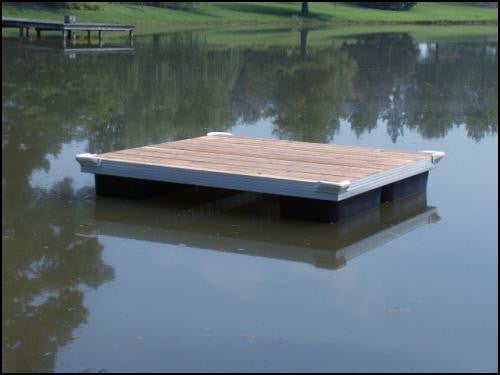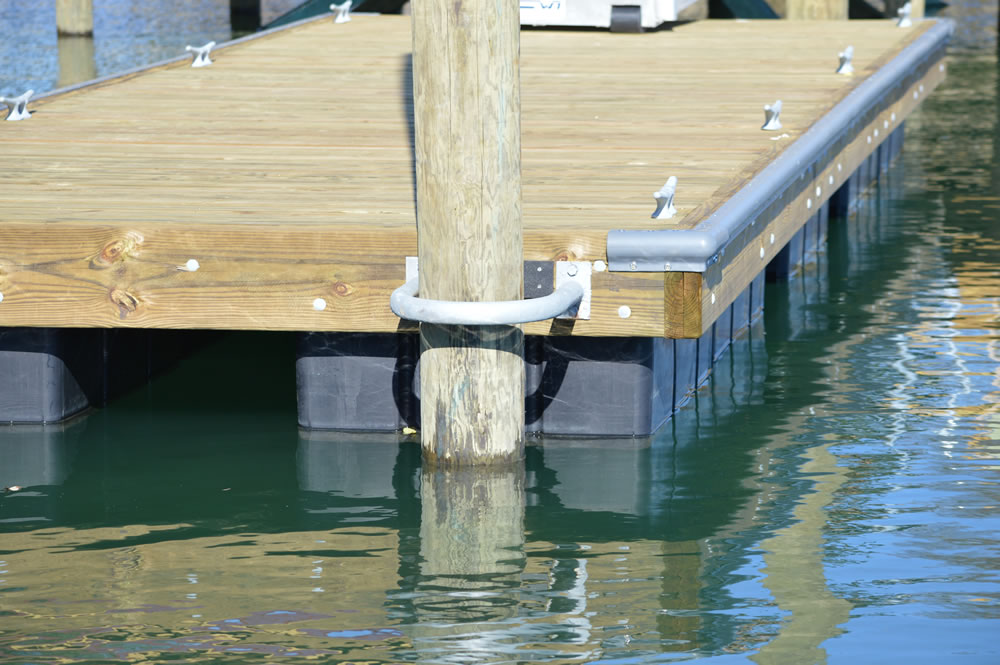Why Floating Docks Are the Perfect Remedy for Your Beachfront Requirements
Floating docks existing a compelling option for waterfront requirements, particularly due to their versatility to fluctuating water degrees and their durable, modular style. As we discover the multifaceted benefits and applications of floating docks, it ends up being evident why they stand out in the world of waterfront facilities-- specifically when considering the lasting advantages they offer for numerous stakeholders.
Key Benefits of Floating Docks
The versatility of floating docks deals countless benefits for waterfront applications, making them an increasingly prominent selection amongst marina drivers and residential property designers. One of the main advantages is their versatility to rising and fall water degrees, which permits them to continue to be useful in numerous settings, consisting of lakes, rivers, and seaside locations. Unlike typical set docks, floating docks can fluctuate with the tides and seasonal changes, ensuring consistent accessibility.
Additionally, floating docks are normally much easier and much less costly to maintain and install. Their modular layout promotes fast assembly, decreasing labor costs and building and construction time. The materials made use of in floating dock building are often immune to rust, guaranteeing longevity with marginal upkeep.
Safety is an additional essential advantage; the resilient nature of these docks decreases the danger of accidents throughout disembarking and boarding, making them specifically appealing for family-oriented facilities. Last but not least, their ecological impact is less than that of fixed frameworks, as they do not interrupt marine environments. Collectively, these benefits position floating docks as a premium remedy for a variety of waterfront requirements, aligning with both operational efficiency and ecological factors to consider.
Ideal Applications for Numerous Activities
Flexibility is a characteristic of floating docks, making them suitable for a vast array of activities throughout numerous waterside settings. These flexible structures can work as ideal systems for leisure tasks such as boating, fishing, and swimming. Their buoyant nature enables very easy access to watercraft, enabling smooth departure and disembarkation, while also supplying a stable area for fishermens to cast their lines.
In commercial setups, floating docks assist in the loading and dumping of goods, accommodating both little and huge vessels. They are especially helpful in locations with fluctuating water levels, guaranteeing that procedures continue to be uninterrupted. Additionally, floating docks can be used for waterfront dining and enjoyment, supplying a one-of-a-kind and scenic experience for patrons.
Environmental applications are also notable; floating docks can operate as monitoring systems for wildlife enjoying or as docking terminals for research study vessels taken part in environmental research studies. As marina expansions become more prevalent, these docks supply a sensible remedy for boosting capability without comprehensive land modifications. Ultimately, the versatility of floating docks makes them a preferred choice for anyone looking for efficient and useful waterside services.
Design and Modification Choices
Floating docks not just accommodate varied tasks however also supply a variety of design and modification choices that enhance their capability and aesthetic appeal. These functional structures can be customized to fit certain waterfront demands, whether for property, commercial, or entertainment functions.
One trick element of customization is the option of materials. Choices range from high-density polyethylene to light weight aluminum, each providing one-of-a-kind benefits in regards to toughness and maintenance. Furthermore, the configuration of the dock can be adjusted to suit numerous water levels and ecological conditions, making sure security and security.
Layout functions can include incorporated seating, railings, and lights, which not only enhance use but likewise boost the appearance of the dock. Custom finishes and shades permit owners to match the dock with existing structures or individual preferences, producing a natural search for the waterside.
Furthermore, floating docks can be made with modular areas, allowing very easy expansion or reconfiguration as demands alter. This flexibility is particularly useful for growing families or developing business. Overall, the comprehensive layout and personalization options available make floating docks an extremely versatile remedy for any kind of beachfront setup.
Installation and Maintenance Considerations
Usually, effective setup and upkeep of floating docks need cautious planning and interest to detail. Before beginning installation, it is important to evaluate the particular site conditions, including water depth, wave activity, and neighborhood laws. This first analysis notifies the option of materials and design, ensuring the dock will hold up against ecological anxieties.

Maintenance is just as important to lengthen the lifespan of the dock. Routine inspections must be conducted to determine damage, especially on flotation protection tools, adapters, and decking. Cleaning up the dock occasionally helps stop the build-up of algae and debris, which can jeopardize surface area integrity and looks.
In addition, seasonal preparations, such as eliminating devices and safeguarding the dock during extreme weather condition, can stop damages. By prioritizing proper setup and regular upkeep, proprietors can ensure their floating dock remains a functional and dependable waterside option for several years ahead.

Ecological Effect and Sustainability
The environmental impact of floating docks is a crucial factor to consider for beachfront jobs, as these structures connect straight with water communities. floating docks. Unlike typical set docks, floating docks minimize disturbance to the substrate, enabling all-natural sediment activity and decreasing erosion. Their style allows for water circulation below, advertising healthy marine atmospheres and sustaining regional anonymous wild animals
Numerous floating docks are created from sustainable products, such as environmentally friendly compounds and recycled plastics, which decrease the carbon impact related to production. Contemporary layouts incorporate functions that boost ecological sustainability, such as permeable surface areas that promote water filtration and lessen air pollution.
Floating docks likewise give a perfect system for environment restoration by supporting the growth of marine vegetation and offering shelter for fish and other marine microorganisms. By consisting of attributes like fish habitats and submerged plantings, floating docks can improve biodiversity in the location.
Additionally, these frameworks can be designed to accommodate solar panels, supplying renewable resource alternatives that further reduce their environmental impact (floating dock services). On the whole, floating docks stand for a lasting option that stabilizes human use beachfronts with the conservation of crucial ecological communities
Verdict
In final thought, floating docks present a very versatile and sustainable option for diverse beachfront requirements. Ultimately, the personalized functions and capacity for development further strengthen floating docks as an excellent option for any beachfront job.
Floating docks existing a compelling remedy for waterside demands, Read Full Article especially due to their adaptability to changing water levels and their robust, modular design. Unlike standard fixed docks, floating docks can increase and drop with the trends and seasonal changes, making certain consistent access.
Collectively, these benefits position floating docks as a superior option for an array of waterfront demands, aligning with both operational performance and ecological considerations.
On the whole, the extensive style and modification options offered make floating docks a highly adaptable option for any kind of waterfront setting.
Unlike standard set docks, floating browse around here docks reduce disturbance to the substratum, allowing for natural sediment motion and lowering disintegration.